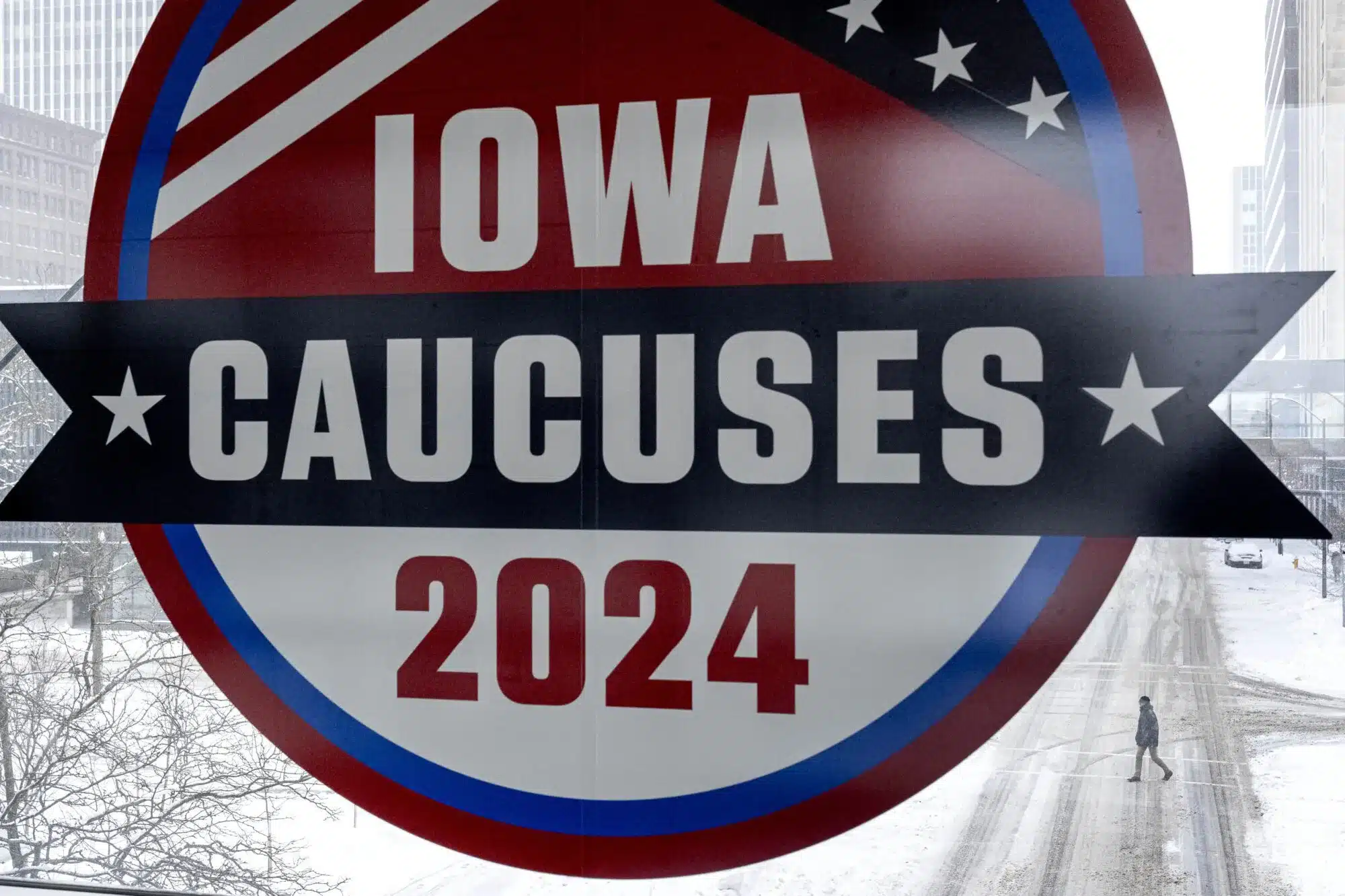This article first appeared on the Magnolia Tribune.


A man walks across the street below a sign for the Iowa Caucuses in downtown Des Moines, Iowa, Saturday, Jan. 13, 2024. (AP Photo/Andrew Harnik)
Polling shows former President Donald Trump is far outpacing the GOP field with former U.N. Ambassador Nikki Haley now in second.
Today’s Iowa caucuses officially kick off the nominating process in this year’s presidential election.
All eyes are on Republican caucusgoers as Monday’s results from the over 1,600 precincts in 99 counties could set the tone for voters across the nation considering whether to back former President Donald Trump’s bid for another term or choose a new face to lead the party into November.
According to FiveThirtyEight’s latest polling averages out of Iowa, Trump remains far out front of the GOP field with 52.7%. Former U.N. Ambassador Nikki Haley is now running second with 18.7%. Haley’s jump ahead of Florida Governor Ron DeSantis has come in the last week, according to FiveThirtyEight. DeSantis is now polling at 15.8%.
However, Iowa voters have not chosen the eventual Republican nominee in the past three contested presidential election cycles. Former Arkansas Governor Mike Huckabee won Iowa in 2008 while former U.S. Senator Rick Santorum won in 2012 and U.S. Senator Ted Cruz won in 2016. None of those Iowa winners went on to be the GOP nominee.
About the Iowa Caucuses
The Iowa caucuses are unlike voting in most areas where those wishing to cast a ballot simply head to their local precinct and make their mark either digitally or otherwise.
Instead, the Iowa caucuses are more like a neighborhood gathering. Groups of voters come together to not only vote but also to hear from party leaders and candidate representatives.
On Monday evening, Iowa Republicans will converge on their precincts – typically schools, churches, libraries and community centers – to cast their vote in a secret ballot following the election of precinct chairs and secretaries. Caucusgoers will also be treated to speeches from a supporter of the presidential candidates on the ballot.
Once everyone has voted, the results are calculated in open view and announced to the room before being reported to the state party.
The 2016 election cycle saw a record turnout in the Iowa caucuses from Republicans, with nearly 190,000 coming out to participate in the first-in-the-nation balloting. Depending on the severity of the wintry weather, some analysts are predicting Monday’s turnout could top 200,000.
Who Votes Next
The next round of voting for Republicans will be in New Hampshire on Tuesday, January 23rd, followed caucuses in Nevada and the U.S. Virgin Islands on February 8th.
South Carolina and Michigan are then up, with primary elections set for February 24th and 27th, respectively.
Voters in Idaho, Michigan, and Missouri will caucus on March 2nd, followed by Washington D.C. on March 3rd and North Dakota on March 4th.
The biggest grouping of GOP elections will be on Super Tuesday, March 5th, when 15 states and American Samoa will cast ballots.
Mississippi, Georgia, Hawaii, and Washington voters will have their voice heard the next week on March 12th.
The rest of the states and territories will follow, voting throughout the remainder of March and into the first week of June.
This article first appeared on the Magnolia Tribune and is republished here under a Creative Commons license.
Read original article by clicking here.

